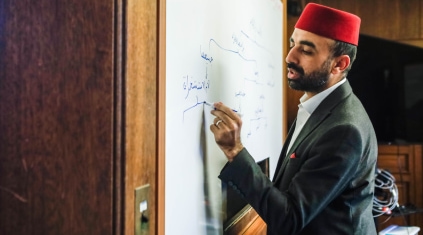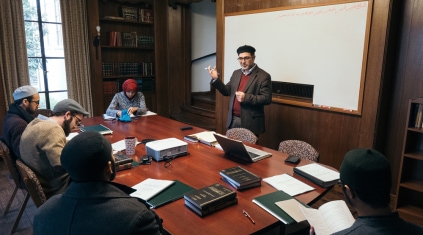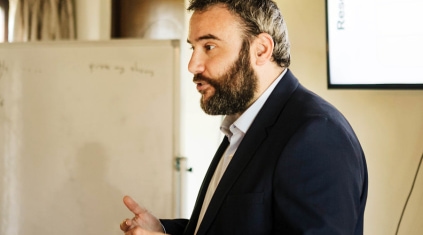MA Areas of Concentration
MA Degree in Islamic Texts
Islamic Law
The Islamic law concentration covers both legal theory (uśūl al-fiqh) and positive law (furū¢ al-fiqh). The course of study takes students through a series of texts that embody the scholastic method and approach to concepts and problems in the two disciplines. The juridical and theological schools of legal theory are also explored. Students study, analyze, and evaluate the major hermeneutic approaches to the sources of Islamic law, as well as focus on the legal reasoning and principles employed by a jurist when interpreting and applying the law to new cases. Additionally, the program emphasizes the rich interplay between law, kalam theology, and the Arabic language when considering the various schools of legal theory, with the goal to read, interpret, and explicate advanced texts in Islamic law.
Islamic Philosophy and Theology
This concentration takes students through the foundational texts of kalām theology and falsafah. Coursework and texts range from the Ash¢arī and Māturīdī schools of theology to the Peripatetic and Illuminationist (ishrāqī) schools of falsafah. Issues of general ontology (al-umūr al-¢āmmah)—such as epistemology, existence, quiddity, oneness, multiplicity, emanation, and causality—are studied using classical texts by major philosophers and theologians of the various schools. Theological problems of the divine attributes, prophecy, infallibility, ethics, and eschatology are studied. In addition to training students in each of the disciplines, emphasis is placed on cultivating the reading, analyzing, and inquiry skills required for accessing texts in the disciplines. This allows students to conduct research on current problems in the areas of kalam theology and falsafah.
Islamic Finance
The Islamic Finance concentration combines instruction in Muslim legal theory, positive law, and finance. While it shares foundational legal training with the law concentration, it provides specialized instruction in the study of financial transactions within Islamic jurisprudence. This program pairs the study of theory with a tight focus on contemporary Islamic finance applications, with research options including how alternative institutions might provide ethical alternatives in a financialized world. Students will graduate with a deepened understanding of the world of finance within a framework of Islamic moral principles.






